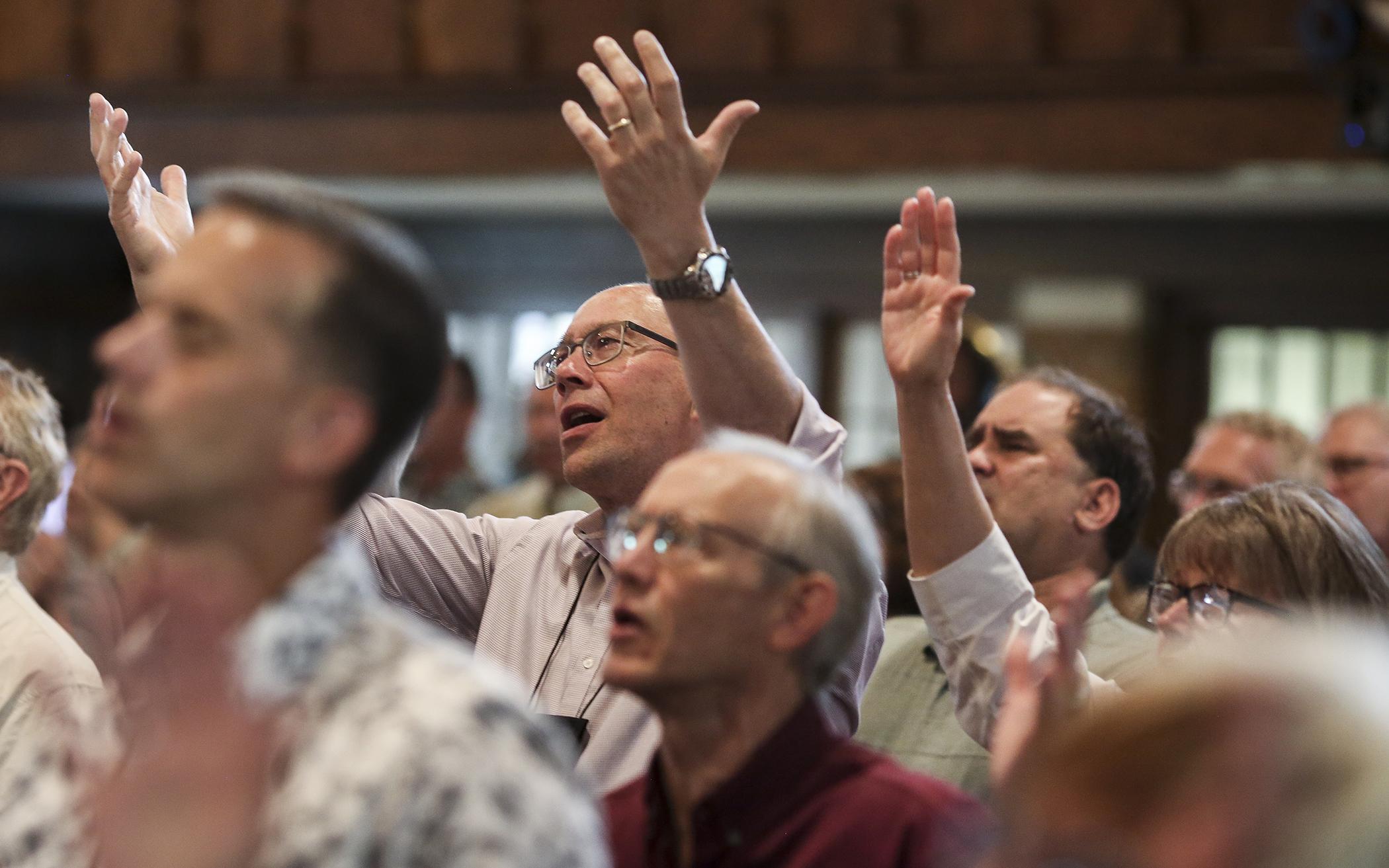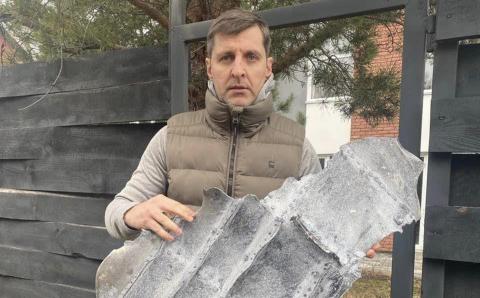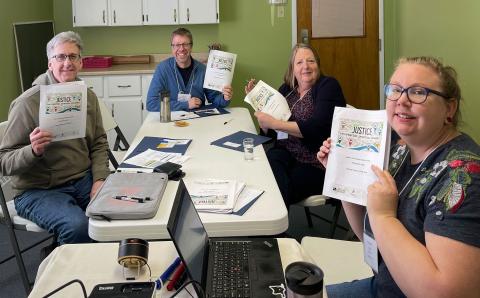Reflections from The Banner news editor on Synod 2024.
Suspension. Discipline. Disaffiliation. Restoration. Wrestling. Doubt. Heartily believe. Settled conviction. Be gentle. Hold that line. These are some of the words reverberating the morning after the close of Synod 2024. Those that echo the loudest will depend on who you are and where you’re situated in the CRCNA. For “140 different members of our denomination and about a dozen councils” who sent communications protesting “Synod 2022’s use of ‘confessional status’ to require all members of the CRC to agree with Synod 2022’s … declaration that all same-sex sexual activity is sinful” (Communication 15, Agenda for Synod 2024), “discipline” might be what resounds. But the reporter for the committee that presented the recommendation to declare discipline for those “that have declared themselves to be in the status of one in protest” wanted synod to primarily hear “disciple” in the word “discipline.”
It’s unlikely that congregations who have “carefully deliberated, studied, and pastorally cared for one another as they have discussed LGBTQ+ issues” yet reached a different conclusion than synod will be “discipled” toward synod’s understanding within a year. And as a response from the general assembly to those churches’ “cries of the heart,” it’s insensitive.
But that’s what synod did. It rejected a minority report—one that suggested synod only receive the protest communications, “understanding that they were written with much prayer, wrestling, and lament”—and approved the action recommended in a majority report. “We have to move as a body to help them (congregations in protest) along in this process,” said Israel Ledee, Classis Chicago South.
No Exceptions to Confessions
The category of being “‘in protest’ regarding settled and binding synodical decisions concerning confessional matters” doesn’t exist in the CRC, the reporting committee said. And now a mechanism to express belief contrary to the church’s confessions and remain ordained as a officebearer—as scholar Alvin Plantinga once had—doesn’t exist either. In discussions stretching across two days, Synod 2024 tightened the process for church councils to receive what’s called a confessional-difficulty gravamen, declaring that “confessional-difficulty gravamina are not meant, nor should be used as an exception to the confessions.”
Officebearers who develop a concern with a confessional doctrine are to communicate it to their council, receive support to resolve the concern, and achieve resolution within three years. Those unable to resolve their concerns must resign their office. Any officebearer with a current unresolved gravamen filed with their council will be on the same timeline.
Synod instructed the CRC’s Office of General Secretary to communicate this new practice for gravamina and to strike from the denomination’s website an FAQ from Synod 2022 that described the tool according to one of the previously acceptable understandings of its use. Synod also is sharing the updated process with Calvin University and has instructed the university’s Board of Trustees to develop “language and processes (for its faculty’s expressions of confessional difficulty) in alignment” with those in the CRCNA. The board has until Synod 2025 to report on this.
Some voiced regret over the requirement to be in complete alignment with every expressed doctrine in the confessions. Jim Poelman, Classis Ontario Southwest, said, “We’re going down an avenue where the church is becoming more divisive.” Others joyfully defended requiring unwavering commitment to the confessions, were “overjoyed” to re-sign the Covenant for Officebearers every year, and spoke with certainty about the need to discipline churches acting out of alignment with synod’s decision that categorized homosexual sex as unchaste and therefore sinful.
‘Some people are going to need to say farewell’
Officebearers from congregations “who have made public statements, by their actions or in any form of media, which directly contradict synod’s decision on unchastity” are suspended as of the conclusion of Synod 2024 and may not be delegated to assemblies of the church. The implications of this decision for classes where several churches fall into this category are unclear. “This depends on the rules of procedure for each individual classis, so it’s not something synod can adjudicate,” synod president Derek Buikema said. “It’s something that classes will need to figure out.”
Synod didn’t name churches, but some in the body identified themselves: Paul Verhoef, Classis Alberta South/Saskatchewan; Ryan Schrieber, Classis Grand Rapids East; and Trish Borgdorff, Classis Grand Rapids East. Borgdorff asked to be able to express “farewell” to the denomination on Synod 2024’s closing day, a request Buikema granted because “some people are going to need to say farewell” and he wanted to “acknowledge this reality.”
I wasn’t part of the CRC when Borgdorff’s father, Peter Borgdorff, was executive director or in the years when Plantinga was teaching at Calvin. I joined 13 years ago, drawn by Christian education, the covenant family, and the warmth of a local congregation—a congregation with whom I haven’t been worshiping for two and a half years that is now among those under discipline for expressing a view that contradicts synod’s decision on unchastity.
What does this mean? The posture of the CRC has changed. Maybe the confessions haven’t changed, but the room to wrestle with them—now three years or less—and the space to relate across differences, at least on the matters of sexuality, have. Synod is finished with the challenging conversations. It’s time to “move on to all the other really important things that we need to talk about in this denomination,” said Herb Schreur, Classis North Central Iowa.
Going Global
Synod 2024 gave hints of where that will be: in all directions, but particularly south. Synod approved the report of the Global Vision Team, which was launched in response to a need from Classis California South and 38 affiliating Venezuelan churches. More classes are also seeking support to envelop churches from outside North America.
Synod approved “church in communion” status with the Christian Reformed Church in Liberia and dedicated its Tuesday afternoon banquet to hearing from two cultural ministry networks within the CRCNA: Consejo Latino and the Korean Ministry Association. Synod launched a taskforce to look into multisite churches, a trend that is still small but of potential interest in the denomination. With an eye on other trends, synod asked that the report being prepared on virtual churches “highlight the portions … related to the online portions of traditional in-person churches or hybrid churches” even though the mandate of the report doesn’t extend to “online permutations of traditional in-person churches.” And synod wants more study “on the historical, biblical, and theological aspects of (church) membership,” how confessional expectations for members compare with those for officebearers, and how the definition of “unchastity” in Heidelberg Catechism Q&A 108 “functions in the life of the CRC.” It tasked all of this to the Office of General Secretary, reporting back to Synod 2026.
A Different Time
The look of synod has changed too. Five years ago The Banner ran a cover with contrasting images from Synod 1938 and Synod 2019. In 2019, 41 women were among the delegates; no women, of course, participated in Synod 1938. In 2024, the number of women was down to 25. Suits and ties like those delegates wore in 1938 are long gone. “My grandfather would not be able to conceive of me attending synod in flip flops,” I overheard a delegate say at the end of a long, hot, humid day as his sandals smack-smacked out of Calvin University’s chapel. What’s on the outside—T-shirts, everyday-casual attire, even a baseball cap—is inconsequential, synod seemed to say, despite more and more people watching. CRC Communications reported nearly 30,000 views on its synod livestreams and recorded sessions (29,379 as of June 24), and more outlets and individuals reported, reflected, and podcasted on synod than in past years.
Synod 2025 will be at Redeemer University in Ancaster, Ont., where it hasn’t met since 2012. It’s expecting the virtual church report; word from the Calvin University board on its confessional difficulty policy in light of synod’s 2024 changes; some kind of status report on the churches synod said must enter the process of discipline (the Office of General Secretary is to produce resources by Nov. 29 to support and shepherd disaffiliating churches); an update on the CRCNA ministry plan, particularly the “Grow in Diversity” pillar; and a report from the Ecumemical and Interfaith Relations Committee on conversations that group will have with the Reformed Church in America.
Although the CRC is in a very different cultural moment than in 1876, when it founded Calvin Theological Seminary and Calvin College (now University), synod will commemorate that 150-year anniversary back at Calvin University in 2026.
Who will be there? The rules of delegation—Church Order Article 45—have not changed, and Synod 2024 upheld the principle of original authority for local church councils when it comes to accountability for officebearers, so if all 49 current classes of the Christian Reformed Church nominate delegates who fit the criteria—not under suspension and not holding an unresolved confessional-difficulty gravamen—the constitution of synod could be similar to recent years. But suspending officebearers from noncompliant churches and expecting officebearers with an unresolved gravamen to “recuse themselves from being delegated to broader assemblies” (the new supplement to Church Order Article 5) indicate that the body will be different the next time synod convenes.
The CRCNA will find its way, God helping it, and in the words of departing delegate Trish Borgdorff, “We trust the Spirit will continue to move and chase after us—all of us—with goodness and mercy, and someday, together, we will dwell in the house of the Lord forever. Then, with eternity on our side, we can find a way to live in unity.”
Synod 2024 met June 14-20 at Calvin University in Grand Rapids, Mich. Find articles from The Banner’s daily coverage at thebanner.org/synod. Visit crcna.org/synod for the Agenda for Synod, advisory committee reports, and recorded plenary sessions. Synod is the annual general assembly of the Christian Reformed Church.
About the Author
Alissa Vernon is the news editor for The Banner.









